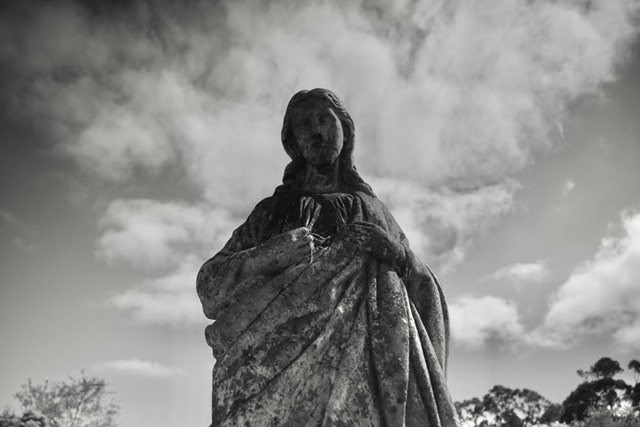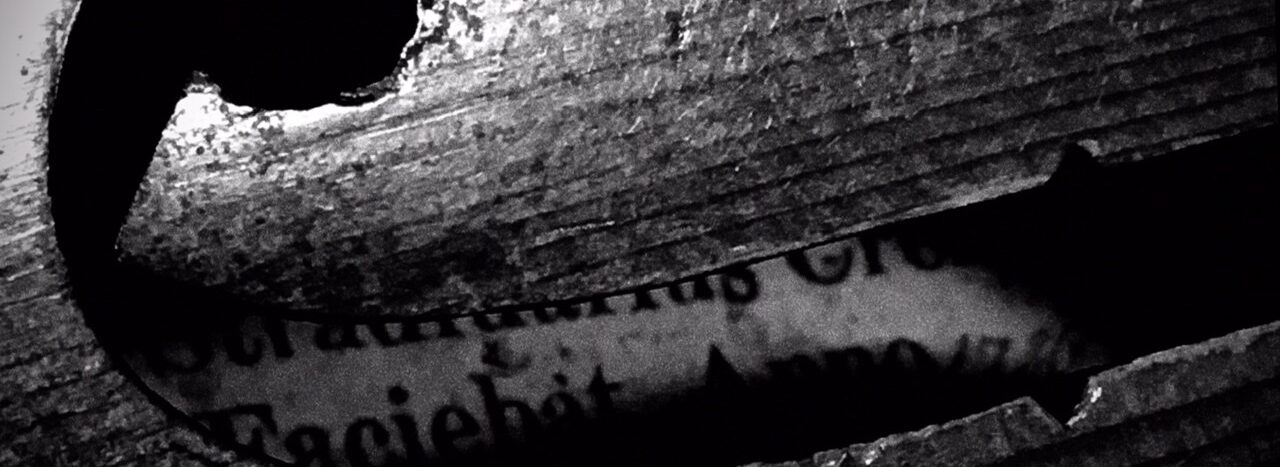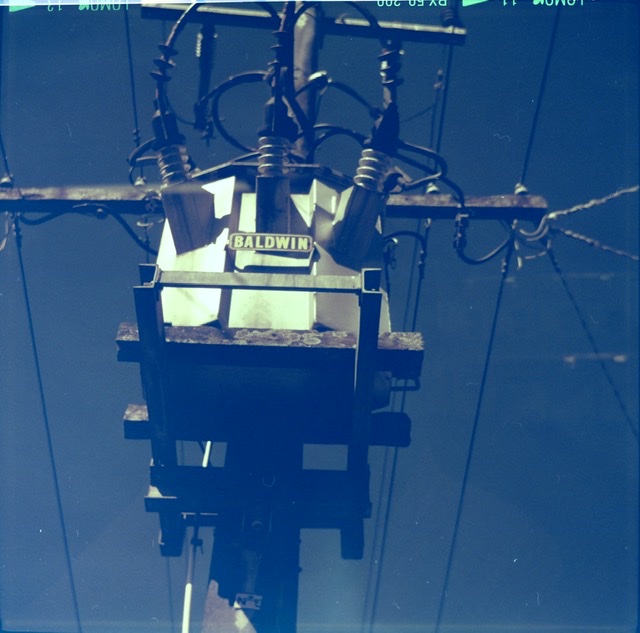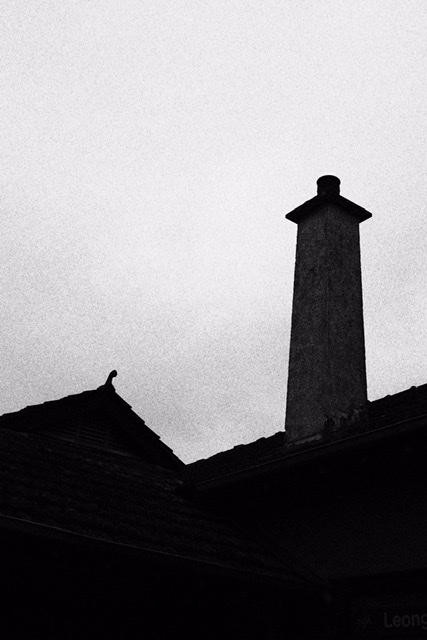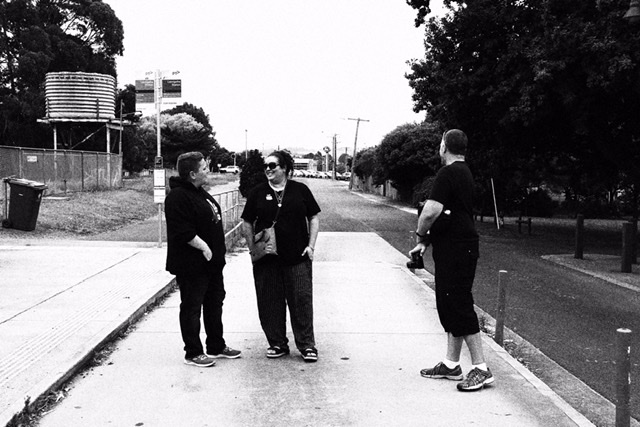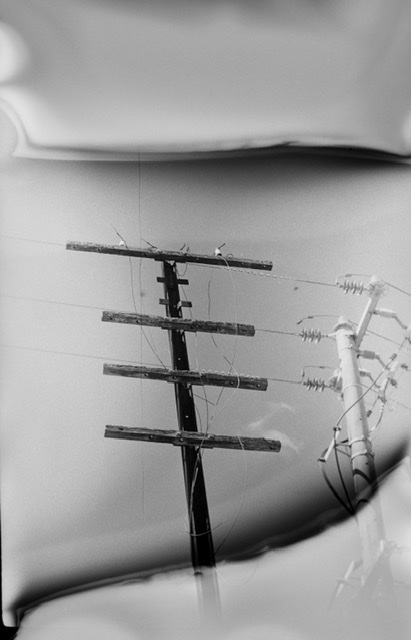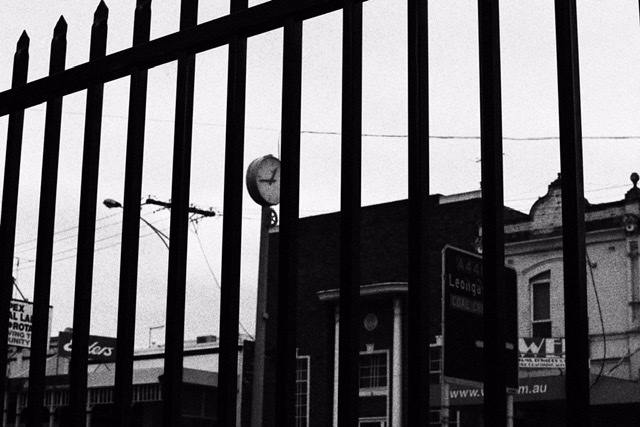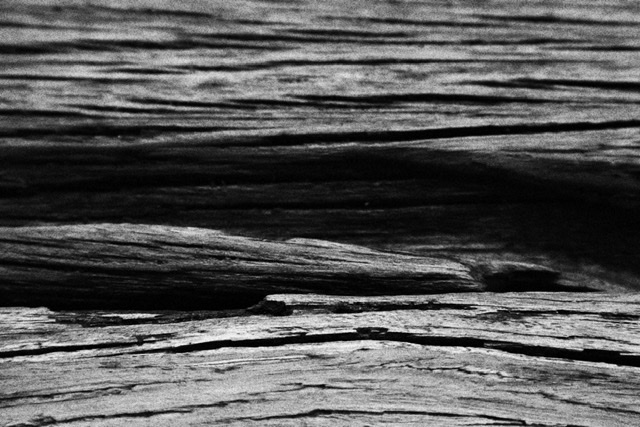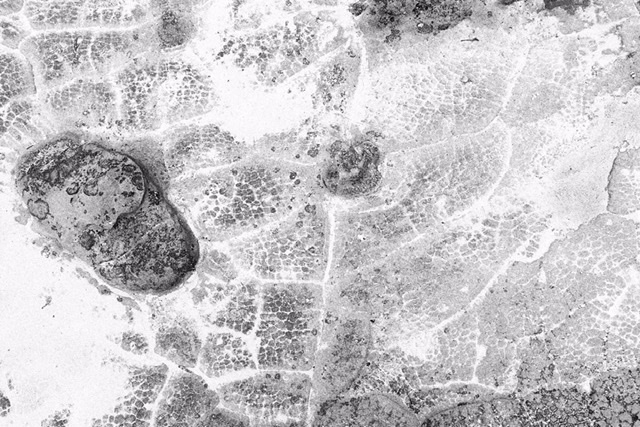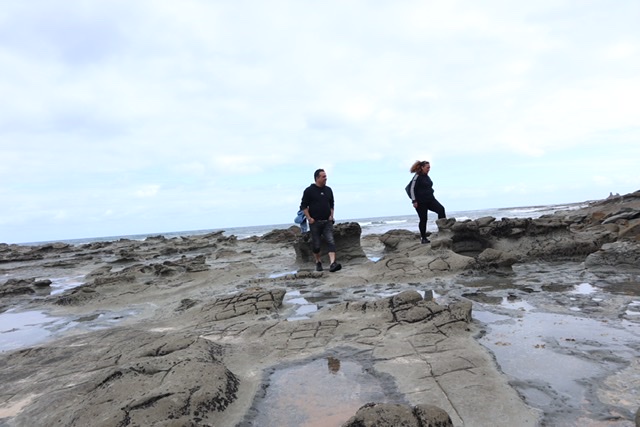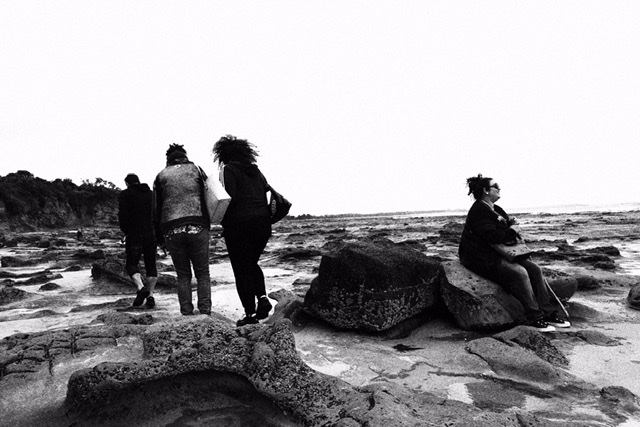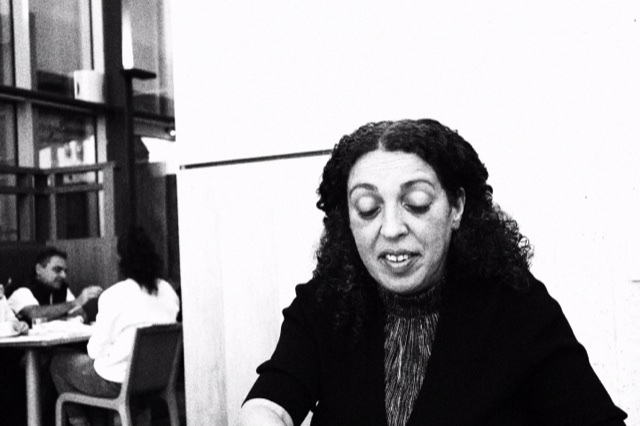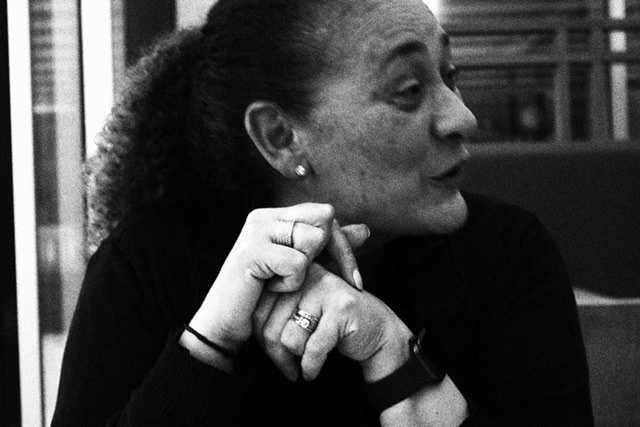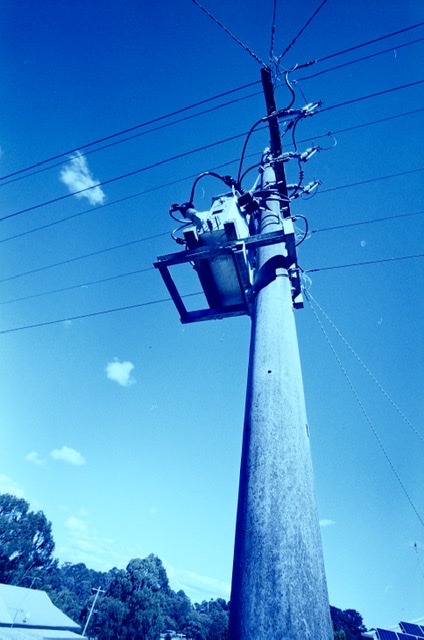With Icarus, stealing ice-creams
On the eaves it says Fish caught daily In waves of rope There is a yoke Sunburned in your shoulders and your back Where through the ache bright day You bore wings I imagine the mottled taste Of vanilla and salt strawberry Light globes swim Big eyed and with that Lost but stalwart resignation Of deep creatures unwillingly brought To gasp the evening-coloured air The door is screened By the flat Neapolitan droop Of tentacles, slap an insult Above the threatening continental shelf, a monstrous Toroid eye, eats insects in the hard Whip-crack, a singe Of rising oil and burning wings Datura noxious in the chitter ricochet From the loom and pedestal Of a turning fan The caged steel weight Makes me think Of Icarus falling In burning oscillation Just that one decisive moment Our grievance at the sinking sun At the fish-eyed mirror Of our recalcitrant misdemeanours While you melt In eternal denial On repeat

Cow town
We return to childish homes Stealing pieces of ourselves Blocks where Almost nothing left Fits Except the criss-cross shadows The iron in that deep part of your nose Spit on your thumb and rub Indelible welts From the formica table’s edge Where cigarettes burned down Left from fingers, hard as yellow A slight tremor in the ribs When passing cattle trucks Slowing, brake, the hard, pneumatic wheeze and shriek Jolting square, starvation eyes The jigsaw door, half-smiling Clouds of puffing smoke From the stacks above the abattoir
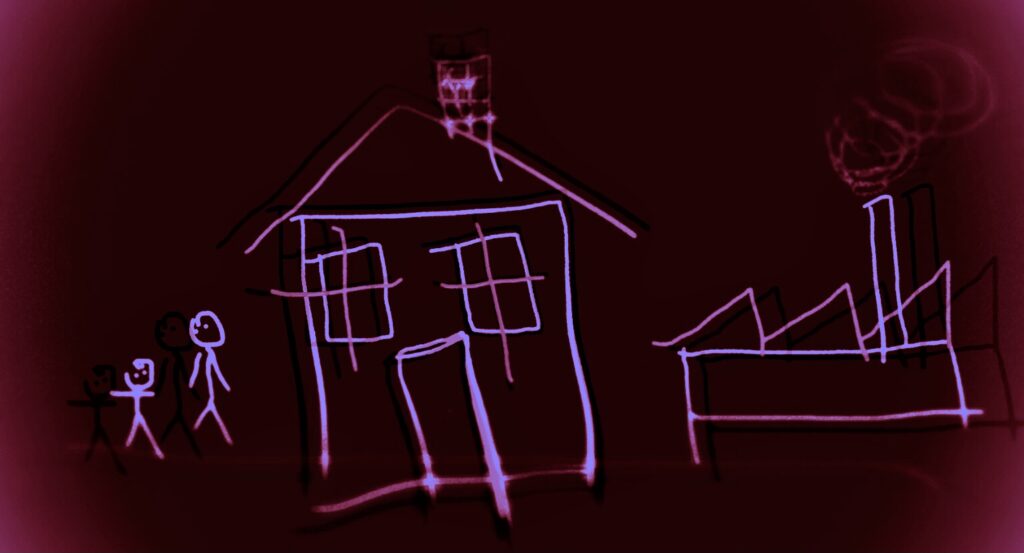
On the charming & irreverent poetry of childhood
In Beyond The Pleasure Principle Sigmund Freud describes how he observed his young grandson playing a game in which he would throw his toys, or any little thing, away into the corner of the room or under the bed, uttering a forlorn or angry cry as he did so, which Freud took to mean “gone” or “away” (fort in the original German).
Later the toddler, Ernst was observed playing a more developed version of the game; he would repeatedly throw a wooden reel with string attached into his cot, crying his small expressions of command or consternation when the reel disappeared from sight. Then with some delight, and another rudimentary cry, (this time an approximation of Da! – meaning “There!” or “Here!”), he would reel it in again.
The game was played as a response to the absence of the child’s mother. To Freud the Fort/Da! game demonstrates how pleasure and pain are inextricably linked in the psyche, how early we learn to take such measures, to make such gestures, to gain a semblance of control, of understanding, from loss, from absence and need, of how one person or object can stand as a substitute for someone else, and indeed through symbolic gestures, how we will repeatedly recall or re-enact a painful experience by such exertion in order to engender a pleasurable one.
The French philosopher and linguist Jacques Lacan, analysing Freud’s Fort/Da! game, saw not only an entry into the symbolic, but the destruction of the real. The grief experienced by the child at the mother’s absence is denuded of its power, of its effects, by turning her into a symbol, by controlling her, by destroying her, through the interplay of presence and absence; as the object of need, she can never quite return to that pre-linguistic, pre-symbolic, ultimate real, that according to Lacan is destroyed by word and symbol.
While through this performance of an act, of a spell, rather like the primitive mimesis of sympathetic magic, though pain is temporarily allayed (or perhaps, alloyed), we can only conclude that the pleasure of the presence of the object of desire, now no longer quite as real, is also lessened. So the child cries, clutching at his mother’s skirts, even when she returns.
In this tantrum, in this petulance, we not only begin to see the necessary first becomings of the individuated self, but also the first formations of poetry. In the rhythmic cries, in the conflict of desires, in the play and transformation, in the creation and control of the symbolic, in the outpouring demand and the inpouring need, in utterances that embody the contradictions of need and want, in the way we deform the real to create objects of amusement, of rancour and delight.
Philosophy and psychoanalysis, at their best, are largely works of language and the imagination. A Fort/Da! game in search of the meaning of presence and absence, of pleasure and pain, of being and non-being, of nonsense and significance, of desire and despair, rather like the continual inquiry of the poetic.
Of course philosophers and psychologists find prodigies and marvels in what seems readily apparent to poets; that in a realm where symbols are filtered through the idiosyncrasies and significances of the self, we enter an arena of transformation and interchangeability.
In children’s poetry, whether in the fabrications of the young, the boasts and taunts of the playground, or in the strange and divinational chants that count who is out and who is in, there is a ruthless kind of measure. In the raucous expressions of amusing rhymes and nonsense, or in the raw and dreamlike anxieties of nursery rhymes and folklore, though we may think they are composed by adults, by the search for essence, the act of simplification and reverie itself, we are reaching back into the primal symbols and desires of that first savage and formative game.
A cotton reel easily becomes an absent mother, and with a string, an obedient puppet. A toy becomes the self, the self the dream. In broken boughs and broken crowns we have other primal metaphors. It is easy to forget that the playground has its own defiance, born of a primordial Darwinian politics, until we remember, perhaps, that;
Jingle bells, Batman smells, Robin ran away, (Traditional; – circa 1967).
It also has ways of emphasizing that acts of defiance must have consequences;
My momma told me, If I was goodee, She would give me, A rubber dolly, But Sally told her, I kissed a soldier, And now she won’t give me, A rubber dolly, (Traditional; – circa 1930).
Childhood also has its essential tragedy;
Ladybird Ladybird fly away home, Your house is on fire, your children alone, All but one, and that’s little John, And he lies under the grindle stone, (Traditional; – circa 1770).
Between the doggerel of mockery and obedience, beyond the charming melancholy of untrammeled tragedy, we can perhaps find another way, beyond authority or moral didacticism, where tomfoolery and beauty meet, in a spell of wild divination, and see again as children;
Intery mintery cuttery corn, Brambly briar and brambly thorn, Wire and briar and barrel and lock, Three fat geese in a flock, One flew east and one few west, And one flew over the cuckoo’s nest. (Traditional; – circa 1888). Intrigued? For further reading I highly recommend; Cinderella Dressed In Yella; The first attempt at a definitive study of Australian children’s play rhymes. 1969, Heinemann Educational, Melbourne. Edited and selected by Ian Turner, June Factor and Wendy Lowenstein
Or, The Book of Bird & Bear, 2019, Maximum Felix Media, Korumburra, which features a selection of my poems inspired by the rhymes, fantasies, nonsense and folklore of childhood, available now from Amazon in the link below, and the usual other online venues.
***
Silvered & bird’s eye
Sold the dresser where You daubed my face For nights out, glittering Too pretty, you said Lashes like a girl The bird’s eye maple Lifting, on one edge As if some creature Of dune and heartwood Half-slumbered still within You eat with your elbows I replied, the way a gull Fossicks in the dirt Ignoring gold and sea glass For lesser morsels The mirror with The spreading stain Of decaying silver A blemish tiding from the edge As if the dawn sea froze Where you jammed The stems of stolen roses The wings reflecting three times Caught the train In the watchful desert evening Ninety three dollars for my name Leaving you behind In a suddenly, echoing empty room For a discontented world The dresser on the rails Following behind
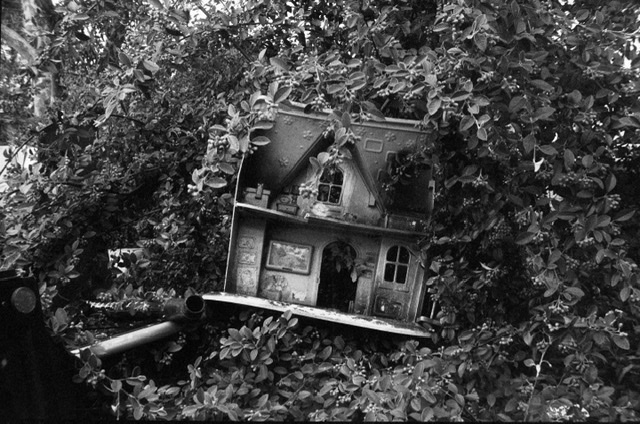
This house on fire
The library makes the small mouse noises Of a patient after defibrillation I have eaten my way through several volumes Of the intimate correspondence Of poets and kings Learning (almost) nothing Except the peculiar bombast and reserve Turned in that intimate, sinister way To bemusing incriminations Of those who know their private thoughts After death will be widely dissected A particularly servile aggrandisement (The fireplace alive with sparks) To providence and The self-important moment Knowing (almost) nothing I gnaw on While grandiloquent lives become The substitute for everyday dissection Limbs splayed and pinned Entrails and misdemeanours Humbly and shamefacedly arranged The map (almost) illegible With that turned half away Scalpel bright But strangely grief-struck grin
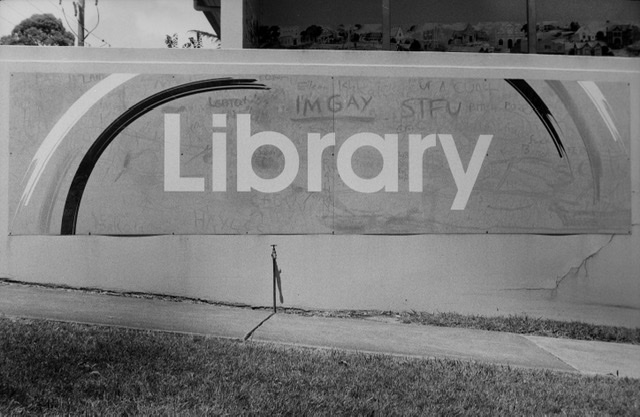
Quite mad, Kate
Have thoughts like a dog Pat and scold them Until they behave With that desperate, Pavlovian drool There is no news today Just stray cats and poetry And the crisp meringue Of clouds If I wilt in the disdain Of your withering heights Perhaps you will forgive My awful pun, bleak and mad As it is, with thwarted love A bird will steal your voice If you let it Nevertheless, a hand full of crumbs

Tadpoles & legionaries
We mostly made buildings of different kinds of light stolen from trees, river bent and man-eating concrete culverts the silver of Ariadne’s thread stretched from crypt to bald-faced waiting mountains, mercury temper gathered in two cupped, prayerful hands disdain transparent but distorting with the descendant ripples of amphibians slipped between numbed fingers sloughing away grey autumn mud, sheathing calves as if wading rancid pools beset by the warfare drone of damsels and of dragonflies made us legionaries languid as invasion with all its noxious gifts matted reeds as if a holy child, in some regretful sacrifice was abandoned here
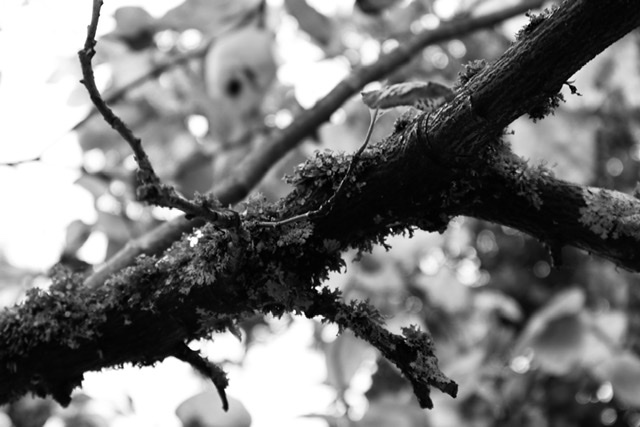
In the curled leaf of your eye, still full with sleep
The morning has holes Like a summer leaf Withered by all those excesses The swelling lymphatic process Curtailed again, in that shirking act That ebbs in sacrifice Closes, a bent fist Inside the marble of your eye Thought you had turned the world Inside out, the moon-thin meniscus Serpentine and fluttering, in return from sleep For that, the ocean dark below All the pooling magma Defying sunrise (you said the name Of some lost shape) Between wakefulness, and The still suffused surface
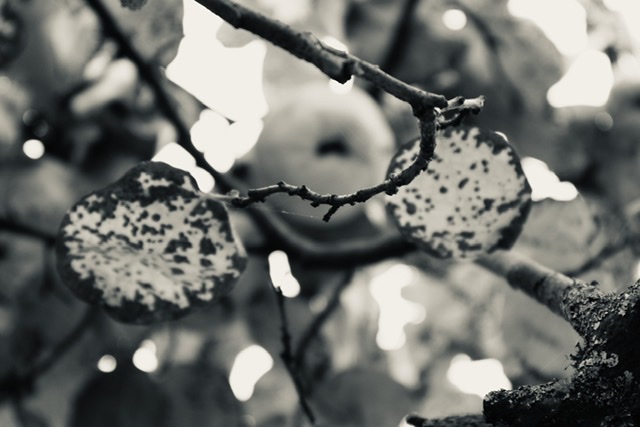
Poetry & bingo
There is no news today Today, no news How strangely New today Without the shouting In the White House The president hums The Stars and Stripes forever When making love To his wife Or almost anyone With a dose of fluoxetine Hair blown thin as gossamer By his compassionate dreams Of all out thermo-nuclear War An unfolding morning chrysanthemum To atone for countless misdemeanours In the quiet of apocalypse day You can still dance with yourself If you keep An appropriate distance The Holy Spirit in between As you said, the Mercies used to say Before they gave it up For poetry and bingo Seventy-seven Gone to heaven Seventy-eight Heaven’s gate With no one left to venerate We all are martyred now
